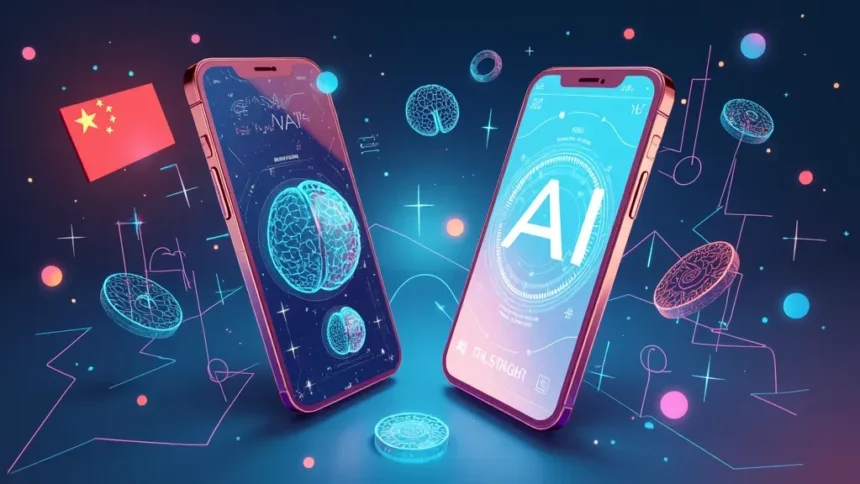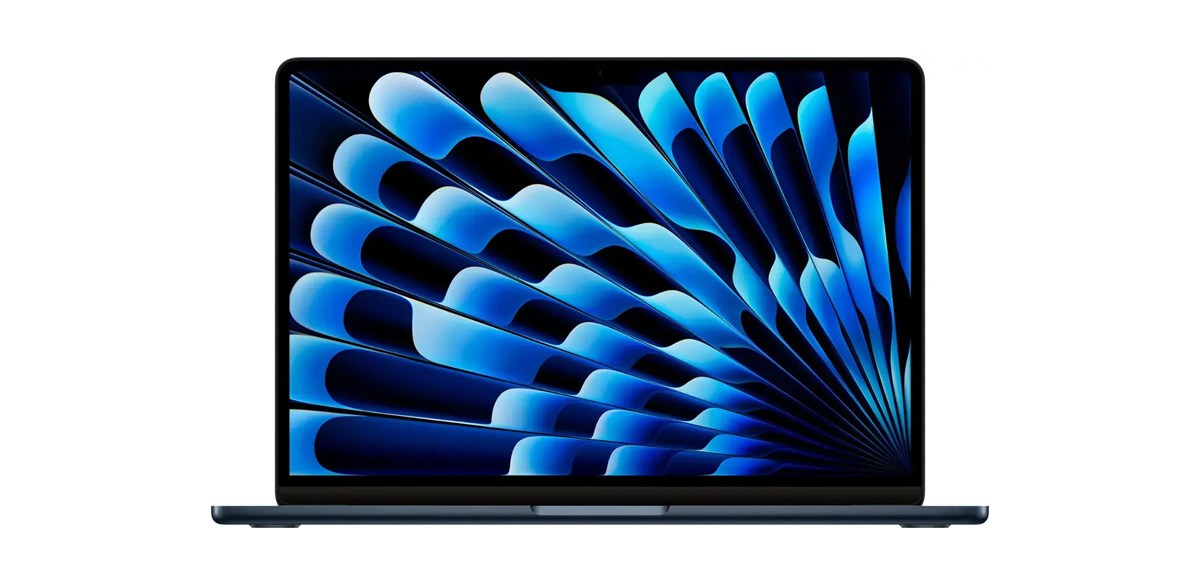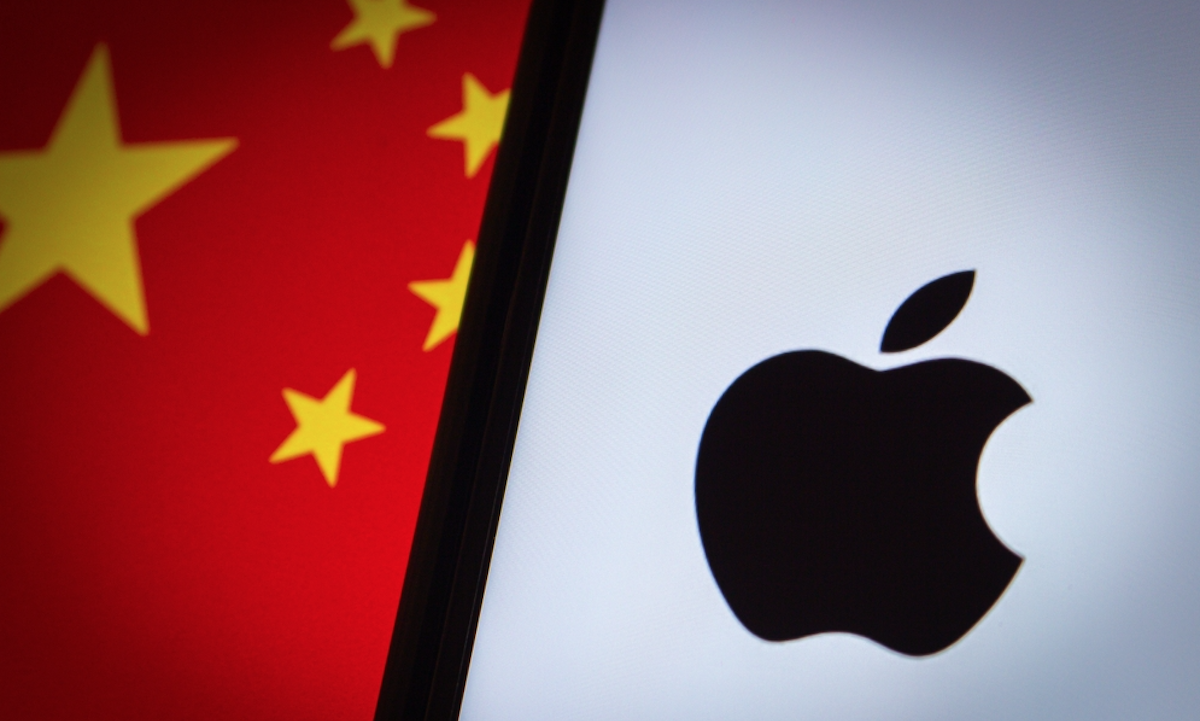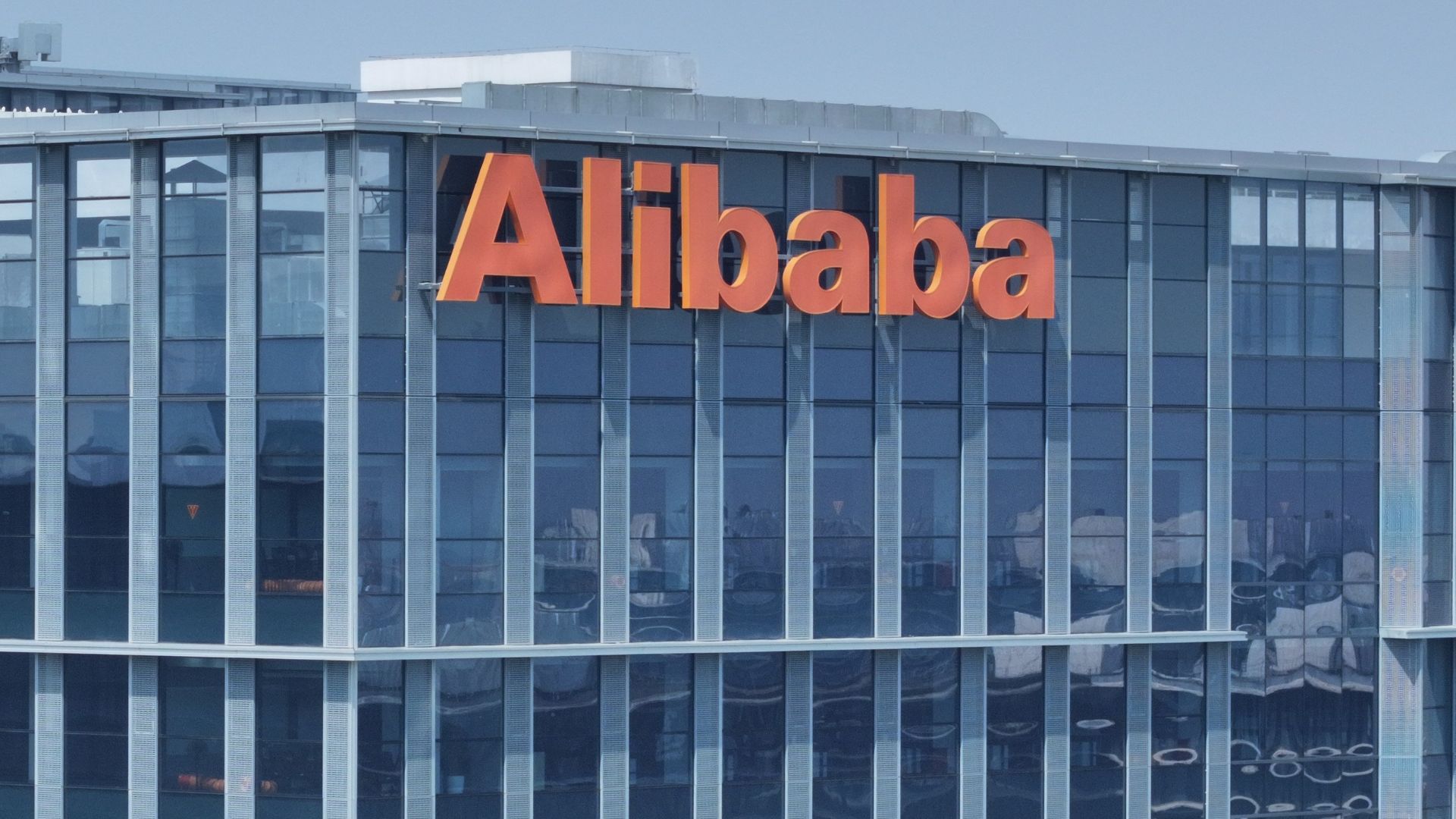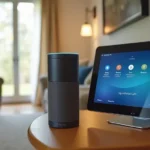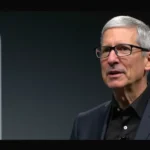Have you heard about the exciting Alibaba Apple partnership? On Thursday, Alibaba officially confirmed their collaboration with Apple, aiming to infuse cutting-edge AI features into iPhones sold in China. This partnership couldn’t come at a better time, as Apple faces declining iPhone sales in the world’s largest smartphone market. With competition heating up and regulatory challenges looming, this alliance may just be the ticket for Apple to reclaim its foothold in China’s tech arena!
AI Features in iPhones: A Game Changer
Imagine your iPhone being supercharged with advanced AI features—sounds exciting, right? Recently, Apple confirmed a partnership with Alibaba to integrate AI capabilities directly into iPhones sold in China. This collaboration aims to enhance user experiences and potentially revive declining sales in this vast market. With consumers increasingly looking for smarter devices, these AI features could be the magic key that unlocks a fresh wave of interest in Apple products.
This partnership isn’t just a random choice; it’s a strategic move to leverage Alibaba’s robust AI technology. Apple had previously faced setbacks with other partners, but this time, they seem to be on the right track. By tapping into generative AI, Apple is setting the stage for a new era of iPhones that could attract users back into their ecosystem. Will this partnership help Apple reclaim its lost glory in China? Only time will tell!
Apple’s Sales Struggles in China
Let’s face it: Apple hasn’t been having the best time in China lately. With a staggering 11% drop in year-over-year sales, the company is feeling the heat in the world’s largest smartphone market. Competing against local giants like Vivo and Huawei, Apple needs to rethink its strategy. The recent partnership with Alibaba is a crucial step, but is it enough to turn the tide? It feels like a race against time!
In a market that shifts faster than a chameleon, Apple must adapt or risk falling further behind. This partnership is not just about technology; it’s about survival. As Apple navigates through tariffs and trade tensions, the stakes are high. Can the new AI features truly resonate with Chinese consumers? The clock is ticking, and Apple is hoping this alliance will breathe new life into its sales figures.
The Role of Generative AI
Generative AI is the buzzword of the tech world right now, and for good reason. It’s not just a fancy term; it’s what Apple is banking on to boost its sales and compete effectively. With the introduction of Apple Intelligence, the company aims to engage users in ways they never imagined. Think of it like having a personal assistant that learns and evolves with you—sounds pretty appealing, right?
This isn’t just about flashy features; it’s about creating a deeper connection with users. As Tim Cook pointed out, regions with Apple Intelligence rolled out have seen better performance in iPhone sales. This suggests that generative AI isn’t just an accessory; it’s becoming essential. Will this be the secret sauce that helps Apple regain its footing? The potential is enormous, and the anticipation is palpable.
iPhone Market Share: A Tight Race
When it comes to market share, Apple is in a nail-biting competition in China. Once holding a comfortable 24%, the tech giant has seen its share shrink to just 15%. This decline puts Apple in a fierce battle with competitors like Xiaomi and Oppo. As the market landscape shifts, every percentage point counts, and it feels like a high-stakes game of musical chairs!
Apple’s strategy to regain market share is crucial, especially with local players like Vivo leading the pack. With Huawei making a comeback, Apple must leverage every advantage, including the new AI features. Will these innovations be enough to outpace rivals? The market is unforgiving, and Apple has to pull out all the stops to stay relevant.
The Importance of Apple Intelligence
Apple Intelligence, the company’s in-house generative AI solution, is more than just a tech upgrade—it’s a lifeline for Apple. As CEO Tim Cook highlighted, markets where this AI was introduced showed stronger sales for the iPhone 16 family. This indicates that consumers are not just looking for devices; they want smarter, more intuitive technology that enhances their daily lives. It’s like having a smartphone that’s not just smart but also understands you!
As Apple pushes forward, Apple Intelligence could be the key differentiator in a crowded marketplace. With competitors introducing their own AI features, Apple needs to ensure that its offerings aren’t just comparable but superior. The question remains: can Apple Intelligence help the brand reclaim its former glory? The stakes have never been higher.
Navigating Regulatory Hurdles in China
When it comes to doing business in China, navigating the regulatory landscape is like walking a tightrope. Apple’s partnership with Alibaba is a promising step, but it’s imperative to ensure that all regulatory approvals are in place. This isn’t just red tape; it’s a critical factor that could determine the success or failure of the collaboration. With so much at stake, Apple is under pressure to tick all the right boxes!
Both Apple and Alibaba have submitted necessary materials to local authorities, but will it be enough? The relationship between U.S. companies and the Chinese government is delicate, and Apple must tread carefully. As they push for innovation, the looming regulatory hurdles could either make or break their ambitions in the market. Will they succeed in overcoming these challenges?
Competition from Local Chinese Brands
The competition for Apple in China isn’t just fierce; it’s like fighting a battle on multiple fronts. With local brands like Vivo and Huawei making significant gains, Apple faces a daunting challenge. It’s not just about technology; it’s about understanding consumer preferences and market trends. This local competition is not to be underestimated, and Apple must step up its game to stay relevant!
As Huawei rebounds impressively, Apple’s market share continues to dwindle. The stakes are high, and the competition is relentless. Apple’s partnership with Alibaba could be a strategic advantage, but can it truly compete against brands that are deeply rooted in the local market? It’s a tough nut to crack, and Apple needs to innovate quickly!
Tim Cook’s Vision for Growth
Tim Cook has always had a clear vision for Apple, and it’s more crucial now than ever. With sales slowing internationally, his focus on integrating Apple Intelligence into the iPhone lineup could be the blueprint for recovery. By prioritizing innovation and harnessing AI, Cook aims to steer Apple through turbulent waters and back towards growth. It’s like he’s at the helm of a ship, navigating through a storm!
Cook’s insights during earnings calls provide a glimpse into Apple’s strategy. He understands that to thrive, Apple must not only innovate but also resonate with consumers. The success of Apple Intelligence could determine the company’s trajectory in the coming years. Will his vision translate into renewed sales and market dominance? The world is watching closely!
The Future of Apple in China
Looking ahead, the future of Apple in China is a mixed bag of potential and uncertainty. With partnerships like that of Alibaba, there’s hope for revitalized sales through innovative AI features. However, the market is unpredictable, and external factors like tariffs and trade relations could impact progress significantly. It’s a classic case of balancing opportunity with risk!
As Apple attempts to regain its footing in a competitive landscape, the effectiveness of its strategies will be put to the test. Can the integration of AI features truly win back Chinese consumers? Only time will reveal if Apple can navigate these challenges and carve out a successful path forward in one of its most crucial markets.
Frequently Asked Questions
What is the recent partnership between Alibaba and Apple about?
Recently, Apple confirmed a partnership with Alibaba to integrate AI features into iPhones sold in China. This collaboration comes at a crucial time for Apple, as they are looking to revitalize their sales in the world’s largest smartphone market, where they have seen an 11% decline year-over-year. Joseph Tsai, Alibaba’s chairperson, expressed pride in this partnership, highlighting that Apple chose them over other companies to leverage their AI technology.
Why is this partnership important for Apple?
This partnership is vital for Apple because of the significant drop in iPhone sales in China. With strong competition from local brands like Vivo and Huawei, Apple needs to enhance its devices with advanced features to regain market share. The integration of Alibaba’s AI capabilities is expected to help Apple improve its offerings, especially as they aim for a new ‘super cycle’ in device sales.
What challenges did Apple face before partnering with Alibaba?
Before teaming up with Alibaba, Apple encountered difficulties with its previous collaboration with Baidu, which did not yield the desired results in integrating AI capabilities. They also considered partnerships with other companies like ByteDance and DeepSeek but ultimately decided on Alibaba, indicating a strategic choice to align with a strong player in the Chinese tech landscape.
How does Apple Intelligence factor into this partnership?
Apple Intelligence, which is Apple’s in-house generative AI solution, is seen as a key element in driving sales growth. Tim Cook mentioned that markets where Apple Intelligence was launched experienced better year-over-year performance compared to those where it was not. This partnership with Alibaba aims to enhance the AI functionalities of iPhones, which could significantly impact future sales.
What are the potential risks for Apple in the Chinese market?
While the partnership with Alibaba could provide a boost, there are still considerable risks for Apple in China. Ongoing tariffs, trade tensions, and fierce domestic competition can adversely affect their sales. Despite efforts to strengthen ties with U.S. leadership and local authorities, the uncertainties in the regulatory landscape and market dynamics remain a concern for Apple.
What is the current state of Apple’s market share in China?
Apple’s market share in China has declined from 24% to around 15%, making it a tight race for third place among competitors like Xiaomi and Oppo. This drop highlights the intense competition Apple faces, especially from brands like Vivo and Huawei, who are performing strongly in the market.
How can I stay updated on AI developments related to this partnership?
To keep up with the latest news and insights on AI, including developments from the Alibaba and Apple partnership, you can sign up for TechCrunch’s AI-focused newsletter. It’s delivered straight to your inbox every Wednesday, keeping you informed on all things AI in the tech world!
Exciting news on the tech front! Alibaba has officially teamed up with Apple to infuse AI into iPhones sold in China, a move that could turn things around for Apple, especially after a dip in sales in this massive market. With iPhone sales down by 11%, this partnership is a game changer! Joseph Tsai from Alibaba expressed pride in collaborating with Apple, mentioning they were the chosen partner after Apple explored options with other firms. As Apple faces stiff competition from local brands like Vivo and Huawei, this alliance could be the boost they desperately need. But will it be enough to navigate the regulatory maze and capture back market share? Only time will tell!
What do you think about this Apple and Alibaba partnership? 🤔💬 Drop your thoughts below and check out more juicy tech updates! 🚀🔥😃

